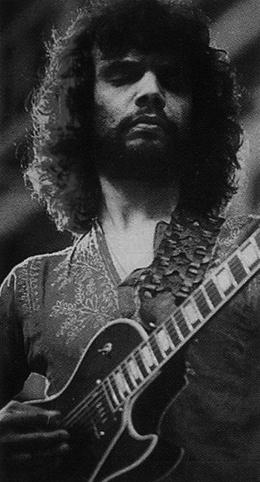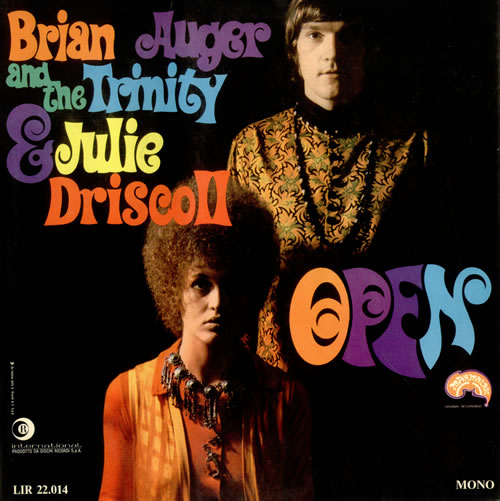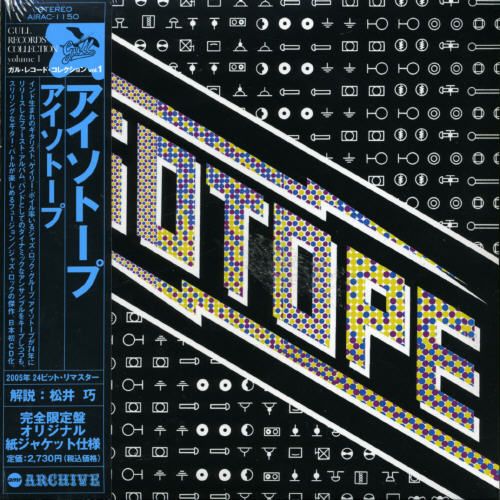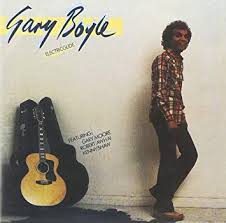
Recently I had the great pleasure of making the acquaintance of Gary Boyle, one of those figures who has remained lost in the pages of history of rock music. It’s like when you’re reading a thick tome on some topic and you keep seeing a name pop up in the footnotes. After a while you begin to think: hell, who IS this guy?
I won’t say too much because you can read my recently published interview with Gary and get all the relevant details. Suffice it to say, he is one rocker that deserves far more than the obscurity he seems to have been relegated to. Here’s just a few names he’s been associated with:
- The Beatles
- Jimi Hendrix
- Dusty Springfield
- Millie Small
- Brian Auger and Julie Driscoll
- Steampacket
- Eddie Harris
- Stomu Yamashta
- East Wind
- Chris Blackwell
- Gary Moore
- Soft Machine
And since the publication of the interview (just a few days ago) I’ve received information from a ‘higly reliable source’ that Gary was part of a ’70s music scene in London that included even luminaries such as Led Zeppelin!
So don’t be ignorant any longer. Here are three slices of Gary Boyle, the Bihar-born guitarist you should have known about a long long time ago.
Slice One.
For several years in the late 60s and then again in the early 70s Gary was the guitarist for blues/jazz/rock outfit Trinity, led by organist Brian Auger and gorgeous vocalist Julie Driscoll. Open, released in 1968, has a sound that slides between soul-jazz and jazz-rock with material that is mostly covers of the likes of Donavan, Dylan and Lowell Fulsom. Which should be no reason to wrinkle up your nose . AllMusic, the go-to Bible of the music obsessed, gives the album 4 out of 5 stars. It is, indeed, a very nice slice of late 60s ‘flower power’ psych music. Gary’s guitar work especially on the first half of the record is wonderful, demonstrating his facility with the a swinging sort of blues rock that I simply adore.
It was during his tenure with Brian Auger that he and Jimi Hendrix became mates. But just after recording Open, Gary quit to pursue a couple of years of jazz guitar instruction in Leeds. He would return to Auger’s fold in ’71-’72.
Track Listing:

01 In and Out
02 Isola Natale
03 Black Cat
04 Lament for Miss Baker
05 Goodbye Jungle Telegraph
06 Tramp
07 Why (Am I Treated So Bad)
08 A Kind of Love In
09 Break It Up
10 Season of the Witch
11 I’ve Gotta Go Now [bonus track]
12 Save Me [bonus track]
13 This Wheel’s on Fire [bonus track]
14 Road to Cairo [bonus track]
Slice Two.
In 1973 Gary formed his own jazz-rock band, Isotope. While it never attained the popularity of such groups as Weather Report or Return to Forever, who pioneered a similar style of improv-heavy electric jam music, now known as ‘fusion’, Isotope was (is) regarded highly by fans, critics and peers. Indeed, Isotope had a large following in the UK and in 1975/6 (?) were ready to tour the States. Represented by Motown of all labels, they arrived in New York exhausted from a European tour. Several meetings took place with label executives and Billy Cobham, an Isotope fan, even put his hand up to produce their next album. According to Gary though, the band was tired, and rather than face the prospect of more grueling weeks on the road, abandoned the tour and returned to England. One can only wonder, what if?
Here is All Music’s review of Isotope, their self-titled debut. A couple more albums followed before the band finally broke up. This is not a style of music I naturally gravitate to but the more I listen to this album the more I find to appreciate. The interplay between Gary on guitar and Brian Miller on keyboards is genuinely exciting. And it is not all lightning paced riff-juggling either. When both mellow out, on tracks like Windmills and Waterfalls, they show they are just as musical and inventive on acoustic versions of their instruments as when they are fully amped. This is one that keeps growing on me.
Track Listing:

01 Then There Were Four
02 Do The Business
03 Oh Little Fat Man
04 Sunshine Park
05 Bite On This
06 Upward Curve
07 Retracing My Steps
08 Windmills And Waterfalls
09 Honkey Donkey
Slice Three:
Gary is ambivalent about missing out on the ‘the big time’. He was always a guitarist first and foremost; it was playing, learning and hanging out with people who liked to do the same that meant the most. He’s the first to admit he was ‘hopeless’ at the business of running a band, and when things eventually fell apart beyond repair in the late 1970s he basically retired from the scene which he done so much to help create. After Isotope he reached the highest point of his career with the album The Dancer which was voted best pop/jazz album of 1978 by the Montreux Jazz Festival!
Electric Glide (1978), in which he is joined by bluesman Gary Moore, is my current favourite Gary Boyle album. From the opening track, Snap Crackle, there is a light and lively feel to the music. You can feel his joy and (perhaps) anticipation that things were once again looking up. The jazz sounds are more smooth and his playing is simply awesome. “Even today I don’t consider myself a jazz guitarist”, he told me. The man is too humble. The record is filled with outstanding and diverse music. Some of it straight-ahead fusion with trademark, shimmering, quicksilver guitar runs by both Boyle and Moore (Hayabusa), some of it Bensonesque, slap-bass puncuated soul jazz (Electric Glide). Again, acoustic tracks (Morning Father Joys; It’s Almost Light Again) are simply delightful while Gaz gives Moore an opportunity to break out with some hairy chested blues-rock.
All Music gives all three albums 4/5 stars. I beg to differ on this one though. It’s nothing short of 5 stars all the way.
Track Listing:

01 Snap Crackle
02 Hayabusa
03 Electric Glide
04 Morning Father Joys
05 Gaz
06 It’s Almost Light Again
07 Grumble
08 Brat No. 2
In the long history of India and the guitar, you’re not going to get much music that tops the work of the greatest guitarist you’ve never heard of, Mr. Gary Boyle.